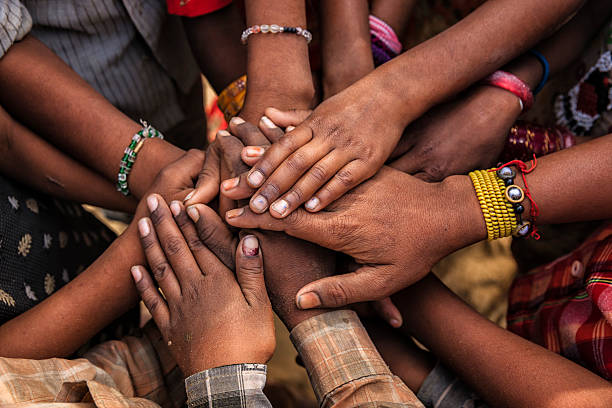Non-Governmental Organizations (NGOs) are pivotal in the global effort to protect and promote human rights. They serve as watchdogs, advocates, educators, and facilitators in the fight for human rights around the world. In this comprehensive article, we will explore the multifaceted and indispensable role that Noida NGOs play in upholding human rights.
Role Play by the NGOs in upholding the Human Right

1.Advocacy and Awareness: NGOs are vocal champions of human rights on both local and global stages. They advocate for policy changes, legal reforms, and social justice to protect individuals and communities from human rights violations.
2. Monitoring and Documentation: NGOs closely monitor human rights situations in regions where abuses are prevalent. They meticulously document violations, collect evidence, and compile reports that serve as critical tools for exposing injustices.
3. Legal Assistance: NGOs provide legal aid and support to victims of human rights abuses. They ensure that marginalized individuals and communities have access to justice and are not denied their rights due to discrimination or lack of resources.
4. Policy Advocacy: NGOs actively engage with governments, international organizations, and policymakers to influence the development and implementation of human rights-friendly policies, laws, and regulations.
5. Human Rights Education: NGOs conduct extensive human rights education campaigns. They organize workshops, seminars, and educational programs to empower individuals with knowledge about their rights and the mechanisms available for seeking redress.
6. Supporting Vulnerable Groups: Many NGOs specialize in assisting specific vulnerable groups, such as refugees, women, children, LGBTQ+ individuals, and people with disabilities. They offer tailored support, advocacy, and services to address the unique challenges faced by these communities.
7. International Advocacy: NGOs operate at the international level, participating in forums like the United Nations. They advocate for the adoption of global human rights standards, contribute to international law development, and hold states accountable for their human rights commitments.
8. Conflict Resolution: NGOs play a crucial role in peacebuilding and conflict resolution. They facilitate dialogues, provide humanitarian aid, and work toward reconciliation in conflict-affected regions.
9. Emergency Response: During humanitarian crises, NGOs provide immediate assistance to affected populations. They deliver essential supplies, offer shelter, provide medical aid, and address the urgent needs of those affected.
10. Environmental Rights: Some NGOs focus on the intersection of human rights and the environment. They advocate for the right to a healthy environment, combat environmental degradation, and protect communities affected by pollution, deforestation, and climate change.
11. Corporate Accountability: NGOs hold corporations accountable for human rights violations related to their activities. They push for ethical business practices, transparency, and adherence to human rights standards in the corporate world.
12. Promoting Gender Equality: Gender-based discrimination and violence are major human rights issues. NGOs work tirelessly to promote gender equality, empower women and girls, and eradicate gender-based violence and discrimination.
13. Education Access: NGOs often focus on ensuring access to quality education for all, especially in marginalized communities. They establish schools, learning centers, and scholarship programs, bridging the educational gap and empowering individuals with knowledge.
14. Healthcare Initiatives: NGOs run healthcare programs targeting specific health issues. They offer screenings, vaccinations, and treatments to underserved populations, contributing to improved overall health and reduced healthcare disparities.
15. Community Development: NGOs engage in community development projects to uplift marginalized communities. They collaborate with local stakeholders, address infrastructure gaps, and promote sustainable practices that lead to holistic development.
Conclusion
Non-Governmental Organizations are essential pillars of human rights advocacy and protection across the globe. Their dedication to advocating, educating, and mobilizing for change is indispensable for the safeguarding of human dignity, freedom, and equality. As we continue to strive for a world where human rights are universal and respected, NGOs will remain at the forefront of this vital struggle.





Comments